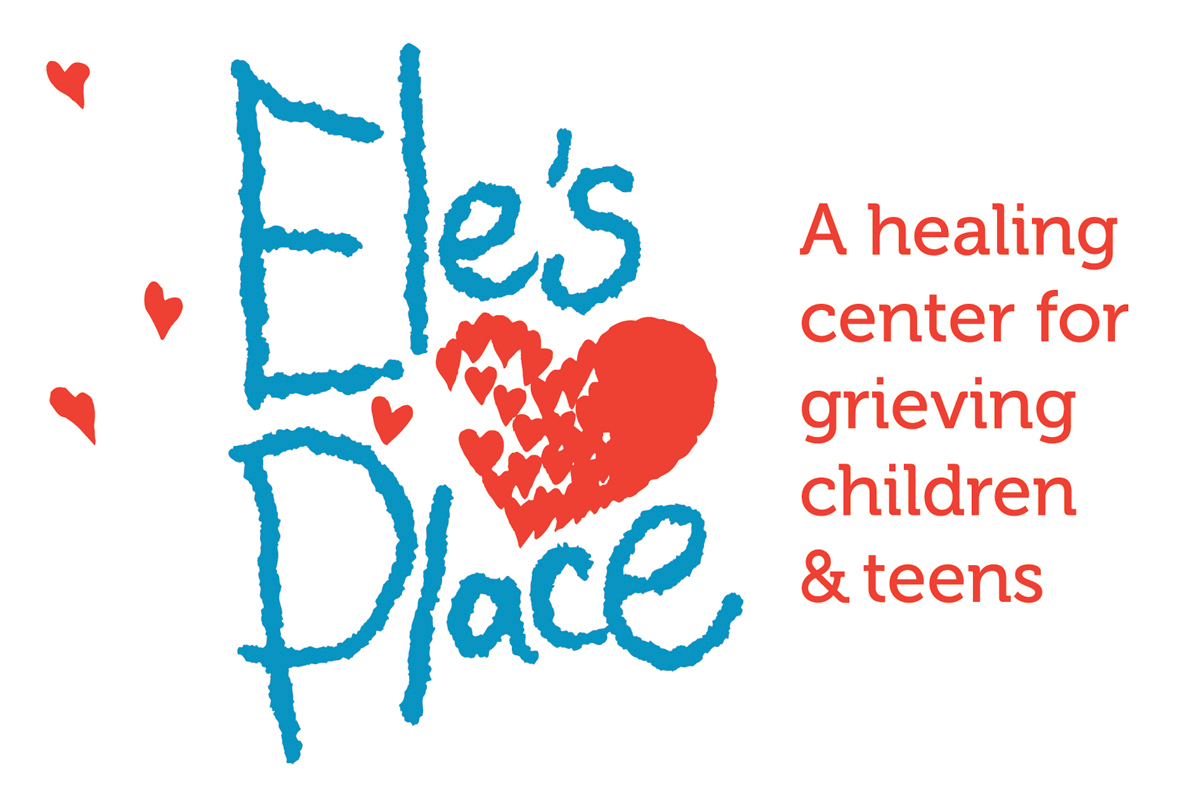A Child’s Grief
Parents and guardians of grieving children often wonder how best to help the young people in their care. Children experience many of the same feelings that adults do when someone close to them dies, but their grief process differs from an adult’s in several important ways. Ele's Place not only provides insight into this process for the adults in the child's life, but also offers structured adult groups concurrent with our children's programming to not only work through their own grieving process, but also affords those parents and guardians a forum in which to discuss the variety of challenges presented to those caring for a grieving child.
The below information highlights some of the ways in which children experience loss and grief and can help adults to understand and better support them.
- Children often grieve intermittently, alternating periods of distress with times when they seem to be just fine. This can be confusing for adults, who may mistakenly conclude that the child is not grieving, or is “over” their grief. Instead, it is the child’s way of protecting himself or herself from the intensity of an experience that is difficult to handle.
- Young children may not understand the finality of death, and may expect that the person will come back. Adults can validate these children by using concrete, "real" language such as "death," "funeral," "coffin/casket," etc., rather than attempting to distance a child from the loss by the use of euphemisms such as "passed away," "lost," etc.
- Children have limited coping skills, and do not have the life experience of adults to help them know they can get through difficult events.
- Children may not be able to put their feelings into words, and will instead act out their feelings through their behavior. Older children and adolescents who have the ability to talk about their feelings may be reluctant to do so with their family and friends. They may feel they need to protect their family from their difficult feelings, or feel embarrassed about being “different” from their friends.
- Children of all ages may blame themselves, thinking that they somehow caused the death, or should have been able to prevent it.
Normal Reactions
Grief does not follow a predictable pattern. A child’s reaction to a death will vary depending on his or her age, relationship to the person who died, cause of death, other losses the child has experienced,current stresses in his or her life, coping skills, and other influences. Some children may show reactions immediately, while for others reactions may surface over time, sometimes several months or even years after the death. Like adults, unexpected triggers can arise for children that remind them of their person who died, and younger children may even struggle to define how or why they are feeling what they are experiencing. Children may also experience renewed grief over a past death as they grow up; they revisit their grief with a new understanding of its impact on their lives.
Some common grief reactions in children include:
- Anger or increased irritability
- Behavior problems; acting out
- Increased fears and worries
- Regression to younger behavior
- Need for reassurance and nurturing
- Difficulty concentrating
- Sadness
- Questioning what happened and why it happened
- Physical complaints (headaches, stomachaches, etc.); sleep disturbances; change in eating habit
- Guilt or a feeling of responsibility – thinking they might have done something to cause the death, or should have been able to prevent it
At Ele's Place, children are given a vocabulary to express their emotions, the opportunity to share their stories and the story of the person important to them who died, and peers who quickly become friends as they learn to process death and their own reactions to it.
Similarly, parents and guardians have the chance to interface with others who care for bereaved children and share their own stories and experiences as they make their way through the various emotions, struggles, and triumphs that death has raised for them.
